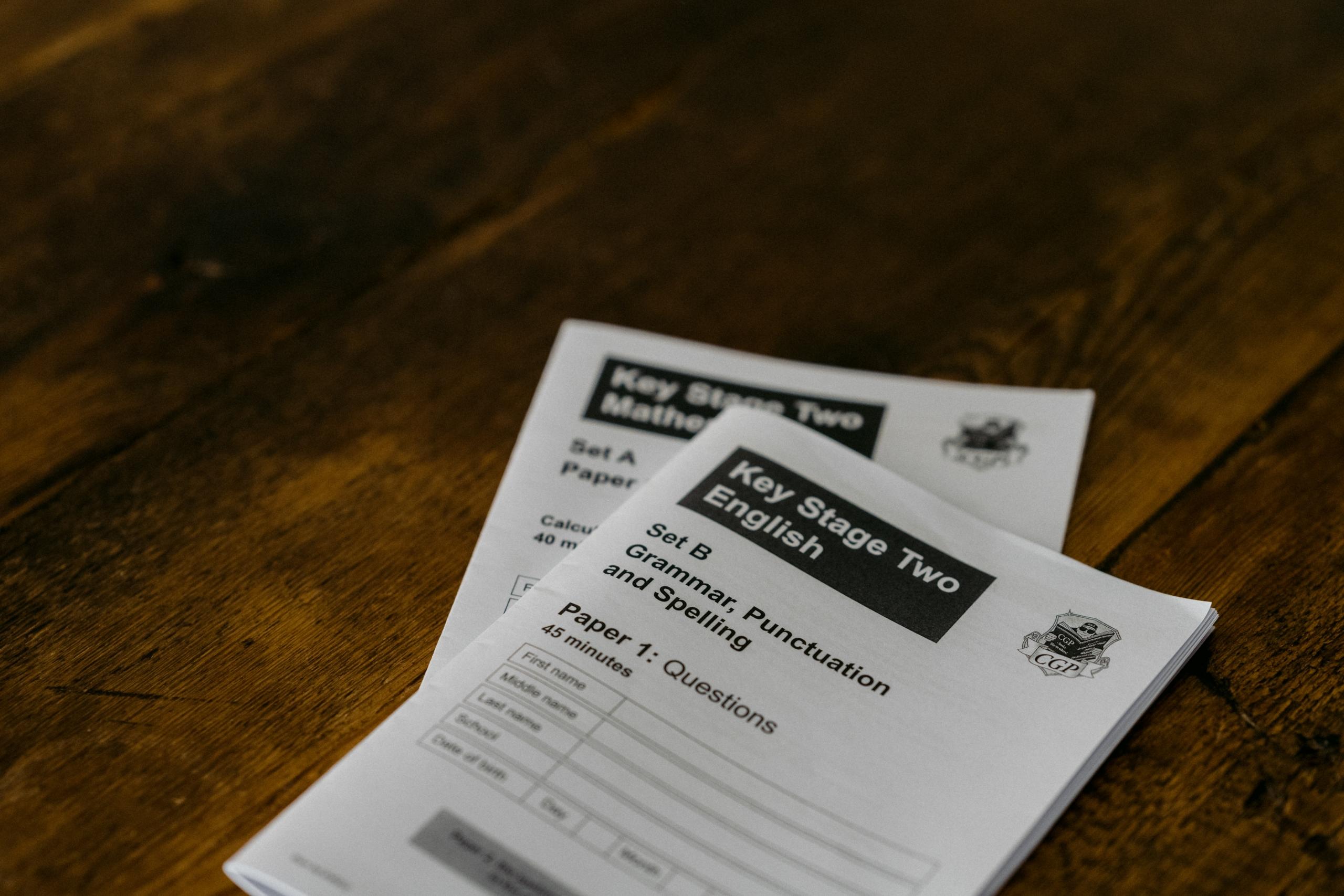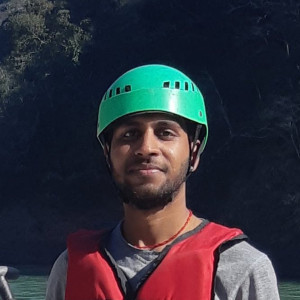Chapters
At secondary schools in the UK, students are required to study science as part of the National Curriculum. The GCSE course in science breaks down into three main subjects: Biology, Chemistry, and Physics. Some students will take to science-based issues like ducks to water, but others won't be so adept.
Regardless of which side of that coin you're on, it's a good idea to seek out as many resources as possible. That way, you'll understand the content of the course and maybe even enjoy your studies, too. Science is one subject that can be considered like marmite; some love it, while others detest it. This can affect motivation from the outset and diminish a student's willingness to participate or engage with the material unless they have the following:
- easy to understand revision materials
- information presented in different ways
- outside resources to get a broader picture of the subject
- some idea of what to expect on the exam
There are many ways to make science enjoyable, and we've found many to share. What follows are our top picks for GCSE science websites and resources, which will include all 3 of the subjects it spans.

The BBC
Even people outside the UK are familiar with the popular science TV personality Brian Cox. This English physicist is responsible for getting a whole generation excited about science. He exploded onto our screens with mind-blowing shows on the BBC, including 'Wonders of the Universe' and 'Forces of Nature'. If you haven't yet watched any of his BBC shows, then they're a great place to start, especially if it's physics that you need help with.
Professor Cox talks about complex physics-related subjects with passion and easy-to-understand language, easily breaking them down into bitesize chunks. Speaking of Bitesize, The BBC is an excellent resource for learning science, not just for its television shows but also for its interactive website - Bitesize. Back to the telly now.

Sir David Attenborough presents awe-inspiring nature documentaries such as 'Planet Earth' and 'Life'. Studying living things in nature has been Sir Attenborough's life's work. His dedication to preserving the environment and informing the public shines through in his gripping narration. His documentary series provides plenty of motivation to get fired up about biology and the nature of living things.
There's no denying the power of the scene in 'Planet Earth II' which shows a small iguana's attempt to escape from a horde of slithering snakes. It's a stunning scene, well worth watching to appreciate life in all its forms better.
As for chemistry, you'll have to jump ship to Sky or YouTube and check out the hugely popular show in its day. It's called 'Brainiac', featuring Richard Hammond. This was a TV show that a whole generation grew up with, presenting various humorous experiments involving chemicals and substances.
Now, a bit more about BBC Bitesize. This popular website divides revision material for GCSE Science exams into different sites, depending upon which board the student is preparing for. For instance, content geared towards the OCR exam covers the areas of Biology, Chemistry, and Physics.
Each main subject area provides access to a wealth of revision materials, activities, and tests, which will keep students learning, making the process entertaining. For the Bitesize AQA website, the resources for the AQA exam are also branched out into Physics, Chemistry, and Biology. There are a variety of topics on the website, spanning all three subject areas, which students can use to practice for the exam. These topics include the use and abuse of drugs, food chains, evolution, crude oil and fuels, and heating and cooling.
As with Bitesize OCR, you can find text material, activities, and tests on the Edexcel version of the Bitesize website. This one also provides text revision material, engaging activities, and practice tests like the other two. Some subjects covered on the Edexcel website include classification, inheritance and variation, materials from the earth, and the electromagnetic spectrum. Each topic is explored interestingly to keep the student motivated and keen to delve deeper into the subject.

Exam Board Websites
Another way you can access resources related to GCSE science is by looking up individual exam board websites. If you know the board responsible for putting on your exam (which you should), you can get ahead by taking a sneak peek at past papers. These documents will give you a better understanding of what might be on your test when the time comes.
As well as gaining such insights, if you're looking to achieve top marks in the GCSE science exams, you should focus on the areas highlighted by that exam board. If there's a lot of material in past papers concerning planets, then there's a good chance that it's an area you need to be familiar with.
Make sure to consult your teacher and look at what you've studied. Some topics may have changed in recent years and are no longer relevant. The websites for AQA, OCR, Edexcel and WJEC all offer excellent free resources for students and teachers. That's also true for GCSE Engineering and any other GCSE exam you'll sit.
Other Websites
Many other websites contain resources that could help you cross the threshold from one grade to another. For instance, if you're a student living in the UK, you'll instantly recognize the CGP logo. The textbook provider is synonymous with the academic cartoon character curiously wearing sunglasses while revising a book.
Nostalgia aside, the textbooks of CGP are excellent for providing insight and information without overloading you. There's even a light dose of humour scattered throughout the revision books. That makes for enjoyable reading, especially compared to textbooks that only feature dense text blocks.
On the CGP website, you'll find all kinds of interactive tests and games to help with revision. Examples of tasks include identifying the different states of matter and proving how much you know about atoms with multiple-choice quizzes. If you already have the textbooks, you can supplement them with the materials on the website. If you don't have them, you can still make the most of the site and see if the textbooks are something you'd be interested in.

My GCSE Science
The 'My GCSE Science' website was created to help students and teachers focus on the AQA exams. It contains free science video tutorials and notes (core, additional, and separate science videos are included). Far from being superficial, the videos cover science topics in depth; each lasts approximately 10 minutes.
Check out their video on infectious diseases to view the youthful, upbeat style with which this severe subject is approached. The colourful visuals and childlike illustrations will undoubtedly appeal to those who like to come to science creatively.
S-Cool
The dedicated revision website 'S-Cool' offers various resources for GCSE Science and other subjects. Users are asked to create an account to obtain access to free exam-style questions, revision guides, and more. A unique aspect of this site is that it links apps applicable for GCSE revision. These apps work your memory to highlight common pitfalls students make in GCSE Science exams.
This site has forums where students can ask whatever burning questions they may have about science. You can join in to talk about everything from where to find a blast furnace to what complex terms like 'displacement of less reactive halogens' mean. Many of my STEM subject students participate in those conversations.
GCSE Science Bitesize Last-Minute Learner
This app, available on iTunes and elsewhere, has been specifically created to help students in the final stages of revision. It's a companion app for the GCSE Bitesize websites, except it's meant for last-minute revision. It's intended to help you improve your knowledge before taking the exam.
You can use it as part of your current revision routine. It gives you space to add your notes and bookmarks for future reference. If there's a specific question or topic you're struggling with, you can put a pin in it so you know to come back to it in your next scheduled revision session.
Students can hone their skills and test their Biology, Chemistry, or Physics knowledge by taking dynamic tests. Note that this app focuses on the main topics for AQA exam specifications. But you can still use it to revise if you're sitting a different exam board's papers.
We hope that you have found these websites useful. Remember that you can also find a personal science tutor through the Superprof website if you need extra assistance with your exam revision. Each tutor is well-qualified to help guide you through whatever you're struggling with in your studies, from specific questions to broad topics. They can even help you clarify your school timetable and set up a revision schedule.
If you have come across other Science-based websites that you think are great for those studying GCSE level, please feel free to add them in the comments section below.
















